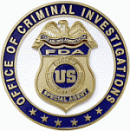Inspections, Compliance, Enforcement, and Criminal Investigations
March 27, 2008: Otsuka to Pay More Than $4 Million to Resolve off-label Marketing Allegations Involving Abilify
|
U.S. Department of Justice Press Release
|
|---|
For Immediate Release March 27, 2008 | CIV (202) 514-2007 |
|---|
|
| WASHINGTON – Otsuka American Pharmaceutical Inc., the American subsidiary of Japanese pharmaceutical manufacturer Otsuka Pharmaceutical Co., Ltd., has agreed to pay over $4 million to resolve allegations of off-label marketing. Otsuka developed Abilify in Japan and then entered into an agreement with Bristol-Myers Squibb (BMS) to co-promote sales of the drug in the United States. Under the agreement, Otsuka sales representatives worked on sales teams led primarily by BMS sales managers. In September 2007, BMS and the Government entered into an agreement resolving allegations that BMS had improperly promoted Abilify for off-label uses. The Food and Drug Administration (FDA) has approved Abilify to treat adult schizophrenia and bi-polar disorder, but has not determined Abilify to be safe and effective in the treatment of geriatric patients suffering from dementia-related psychosis. Thus, the FDA has mandated that the package for Abilify carry a “black box” warning concerning its use in the treatment of dementia-related psychosis. As of the time of the conduct at issue, the FDA also had not approved Abilify for treatment of children. Recently, the FDA approved Abilify for treatment of schizophrenia in adolescents aged 13 to 17 years, and for treatment of acute manic or mixed episodes associated with Bipolar I Disorder in pediatric patients aged 10 to 17 years. Today's settlement resolves government allegations that, from 2002 through the end of 2005, Otsuka knowingly promoted the sale and use of Abilify for pediatric use and to treat dementia-related psychosis. Otsuka is alleged to have participated in directing its sales force to call on child psychiatrists and other pediatric specialists, and urge those physicians and others providers to prescribe Abilify for pediatric patients. Otsuka sales representatives also participated in a specialized long-term care sales force that called almost exclusively on nursing homes, where dementia-related psychosis is far more prevalent than schizophrenia or bi-polar disorder. Because of the potential market benefit, the long term care sales force promoted Abilify off-label for the treatment of dementia-related psychosis. From the global civil settlement amount of $4,000,000, the federal recovery is approximately $2.3 million. Otsuka also will pay approximately $1.7 million to the Medicaid programs in the participating states. As part of today’s settlement, Otsuka entered into a Corporate Integrity Agreement with the Office of Inspector General of the Department of Health and Human Services. This settlement resolves the remainder of the allegations made in a False Claims Act qui tam action entitled United States ex rel. Piacentile v. Bristol-Myers Squibb Co. and Otsuka Pharmaceutical Co., Ltd., Civil Action No. 05-10196-MLW (D. Mass.). The False Claims Act allows for private persons to file a qui tam or whistleblower suit on behalf of the government. If the government is successful in resolving or litigating its claims, the whistleblower may receive a share of the recovery. The whistleblower, Joseph Piacentile, a physician, will receive a total of approximately $348,000 as his share of the federal settlement amount, and an additional share of the state settlement amount, from today’s settlement. This matter was investigated by the Boston offices of the Office of Inspector General for the Department of Health and Human Services, the Federal Bureau of Investigation, and the Food and Drug Administration's Office of Criminal Investigations, and was handled by United States Attorney’s Office for the District of Massachusetts and the Department of Justice Civil Division. ### |








